The Joburg Contemporary Art Foundation (JCAF) is a fascinating institution – the host of annual exhibitions that pose key questions about the world in which we live, an academic research institute, and a space that uses art to illuminate topical societal issues. The most public-facing expression of the organisation is its exhibitions, which are curatorial projects that arise from asking a key question.
For 2024, Ecospheres has brought together a fascinating collection of individual artists, displaying their work together in a way that adds layers of depth and meaning, as if the artworks and artists that come from across the globe are in a conversation with each other. In this case, the conversation is about the relationship of humans to the natural world.
Ecospheres is part one of JCAF's three-year Worldmaking series. "Worldmaking refers to the ways we collectively make the spaces we inhabit through symbolic practices. The human drive towards meaning-making leads us to unconsciously build our world from social conditioning, scientific rationality, artistic traditions, and our own struggle for survival," writes Andrea Mignolo in Learning Through Worldmaking: The Design Way.
This line of thinking is the springboard for JCAF's exploration of topics that include the environment, sustainability, architecture, habitat, and biotechnology. Ecospheres will be followed by Structures (2025) and the trilogy will conclude with Futures (2026). Research-driven and community-oriented, a series of publications and talks form an integral part of these offerings.
Knowledge Talks podcast series
Part of the Ecospheres programme for 2024 is Knowledge Talks; a series of live conversations at JCAF with creators and experts from various disciplines. Free and open to the public, these events have been extremely popular, booking out phenomenally quickly. Thankfully, the discussions have been recorded and turned into podcast episodes for posterity.The Knowledge Talks are concerned with everything from astrophysics and AI to architecture. The idea was to foster an actively engaged "knowledge community" by exploring the dynamic relationship between art and science. These talks are based on the ethos of Joaquin Torres-García's The School of the South, an attempt to establish an alternative and autonomous artistic tradition in Latin America, and to encourage students and emerging artists to seek inspiration from local rather than global sources.
As for the host of these lively exchanges, Ashraf Jamal is a fitting choice. Jamal is an author, art critic, and cultural theorist. He's written extensively on art, and is a deep thinker on its impact on society. Recent publications include Jamal's Strange Cargo: Essays on Art (2022) and a wonderful contemplation of the work of Ernest Mancoba in the collection, The Creative Arts: On Practice, Making and Meaning (2024). In addition to his writing and research work, Jamal's name often comes up as a host on the art walkabout circuit, playing to his particular talent of contextualising and expounding on artworks.
The first three of JCAF's Knowledge Talks to be released as podcast episodes are Neuroaesthetics with Dr Kirti Ranchod, Seed as Relation with Zayaan Khan, and Homage Through Clay with Zizipho Poswa.
DR KIRTI RANCHOD: NEUROAESTHETICS
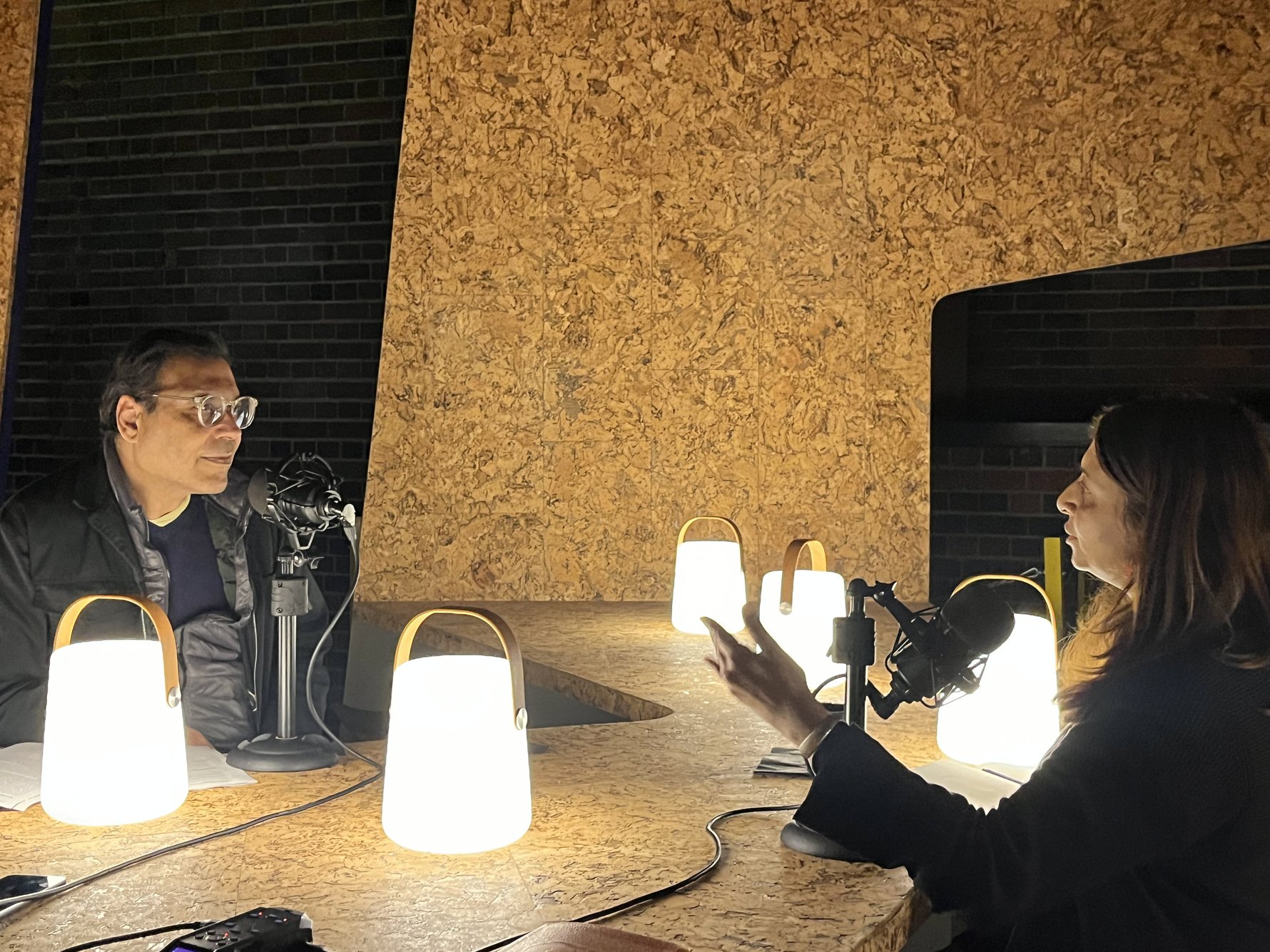
Using her degree in medicine and her specialist neurology qualification, she creates practical neuroscience strategies that people can use to train their brains. She also hosts regular talks at Origins Centre at Wits University, where she discusses the relationship between mental wellness and a variety of phenomena, such as music, art, nature, silence, nutrition, and grief.
Neuroaesthetics is a branch of neuroscience that explores the impact of aesthetic experience – especially the experience evoked by visual arts – on the human brain. In the first episode of Knowledge Talks, Ranchod and Jamal discuss the relationship between brain health and art. Specifically, they discuss these ideas from African perspectives and look at how the integration of diverse knowledge systems can radically enhance our approach to mental wellness and brain health. Listen to this episode on Spotify or Apple Podcasts.
ZAYAAN KHAN: SEED AS RELATION
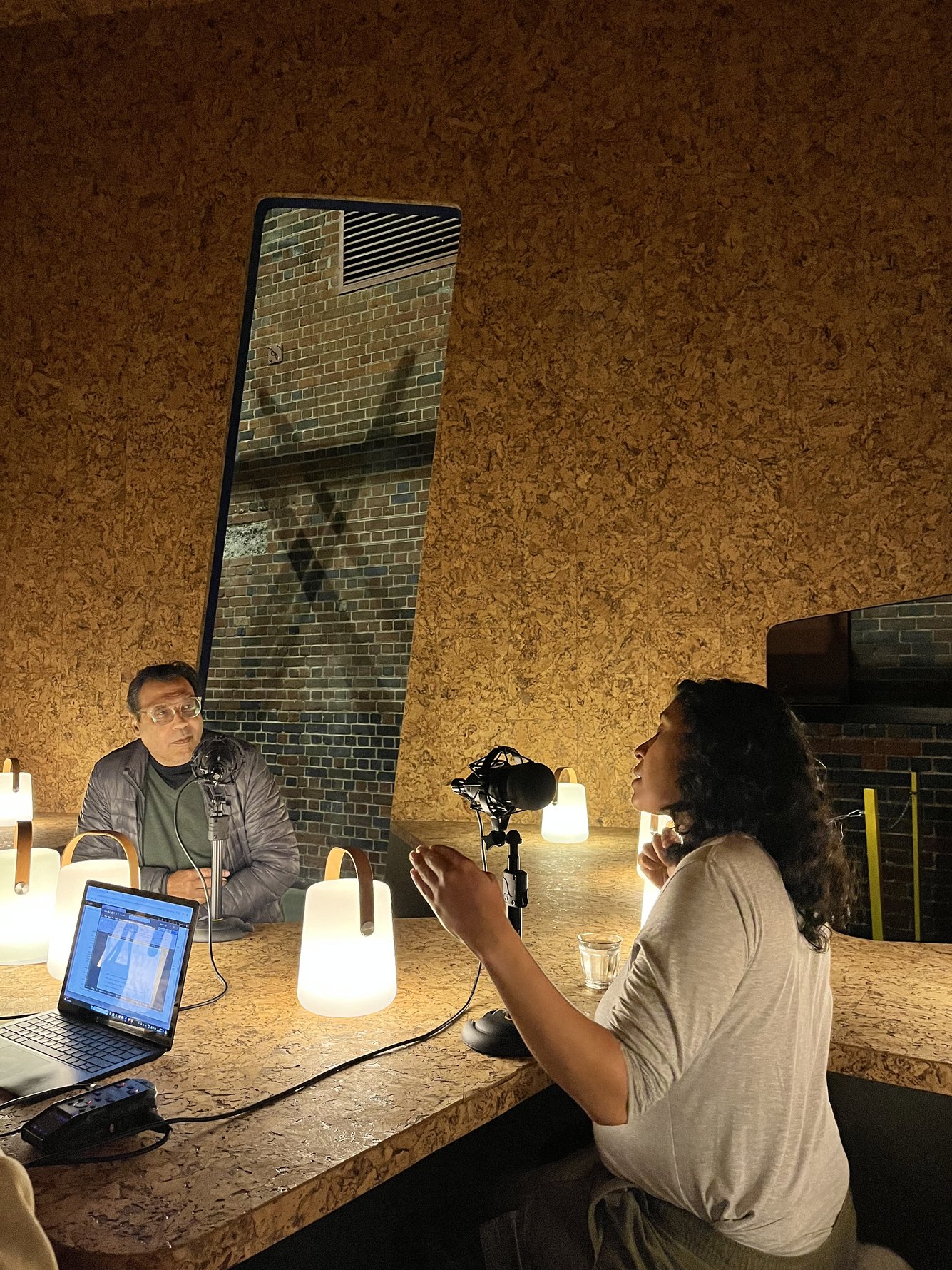
Zayaan Khan is an artist and storyteller who uses her multidisciplinary work to bring attention to issues around food justice, land justice, and seed justice. In addition, she's thought of as a ‘seed librarian’ and ‘indigenous food revivalist’, and with her Seed Biblioteek, she aims to restore the relationship between heritage and food. "I hold space for seed stories like a librarian does, working towards an actual library that holds seeds as well as stories," she tells Mail & Guardian. "Seed is our land, heritage, and future."
Created over a period of two months, Khan's sound installation with Coila-Leah Enderstein, Seeds from the Streets to the Seas, is part of Ecospheres – making the invisible tangible using an unexpected medium.
In her Knowledge Talks episode, Seed as Relation, Khan explores how extinct indigenous knowledge can be restored to contemporary practices. According to her, seeds can be used as a lens through which we can better understand our relation to the world and to other human beings. She also discusses fermentation, grief, and the role of seeds in the context of land in South Africa. She believes in an inherent connection with nature, and uses this to advocate for a better environment through her art. Listen to this episode on Spotify or Apple Podcasts.
ZIZIPHO POSWA: HOMAGE THROUGH CLAY

Zizipho Poswa is a sculptor and ceramicist born in Mthatha in the Eastern Cape. She's known for her large, hand-coiled sculptures that are inspired by the Xhosa rituals and traditions she grew up immersed in. While she frequently uses clay in her sculptures, she also experiments with other materials such as bronze. As Southern Guild writes, Poswa’s works are "bold invocations of African womanhood". She told ARTnews that she attributes her love of art to her mother, who encouraged her to explore her own creativity.
Poswa’s phenomenal hand-coiled sculpture in the Ecospheres exhibition, uNa’kaMzingisi (Mzingisi’s Mother), can be seen both in terms of the traditional water-carrying vessels of the Xhosa people and the way women also carry new life into the world.
In her discussion with Jamal, Poswa circles around the theme of womanhood, specifically the role that Xhosa women have played in her life. She also shares the trajectory of her artistic development by placing it within the context of the cultural and historical milieu of the Eastern Cape. For her, the medium of clay carries far-reaching resonance and symbolic potency when it comes to African womanhood. Poswa also discusses the role of spirituality and art, and the bearing of this on her own practice. Listen to this episode on Spotify or Apple Podcasts.
Upcoming episodes
The fourth podcast in the Knowledge Talks series features architects Ilze and Heinrich Wolff. They also share ideas about their work; specifically their pursuit of freedom and spatial justice in urban South Africa.In the fifth and final episode, CEO and co-founder of Lelapa AI, Pelonomi Moiloa, will discuss the field of artificial intelligence as it applies to the translation of South African languages. She shares her passion for developing sustainable technology that is both relevant and accessible in the context of the Global South.
Thinking through art – more about Ecospheres
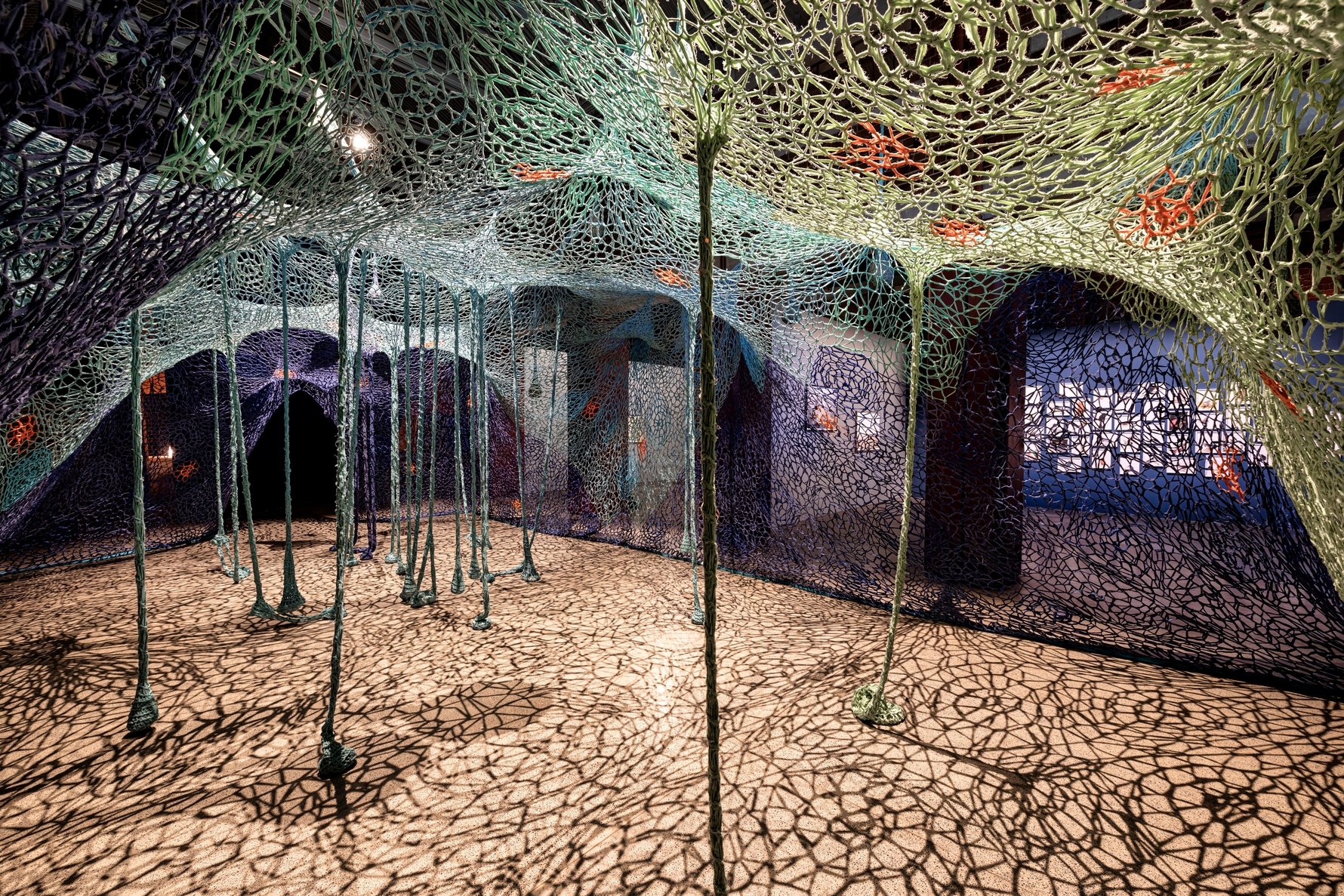
Ecospheres is a trip through the Global South that brings diverse cultures together, with an emphasis on indigenous knowledge systems. It's a useful accompaniment to thinking through our place in the world, particularly regarding stewardship and living together for the mutual benefit of all. The exhibition is made up of three "atmosphere rooms" dedicated to water, air, and earth with immersive and interactive multimedia installations that include a hydroponic lima bean garden, a textile cave, sound, and ceramic sculpture. It's many worlds in one. A central question is one posed by JCAF executive director Clive Kellner: "What kind of world do we want to inhabit?"
What we know, and what Ecospheres emphasises, is that ecology and human nature are not separate; they’re intimately intertwined. Our wellbeing stems from that of the Earth, and vice versa. Yet a symbiotic engagement with the natural world cannot be mandated. Devotion, not legislation, can reveal better, more sustainable paths forward. Relationships are at the heart of the matter. Our JCAF guide, Maxine Maistry, sums it up perfectly: "You look after what you love."
JCAF's exhibitions are all guided in small groups, so booking is required. Part of the unique visitor experience, these tours are consistently excellent, illuminating the many threads that surround and connect the works on show. JCAF is continuously working towards creating, sharing, and developing indigenous knowledge and artistic and research practices.
Email info@jcaf.org.za to subscribe to JCAF's newsletter for the latest happenings and, while you still can, book your guided tour of Ecopheres here. The exhibition closes on Sat, Dec 7.


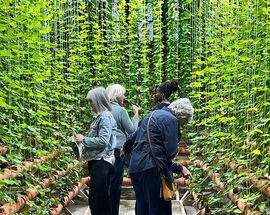
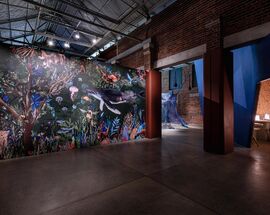
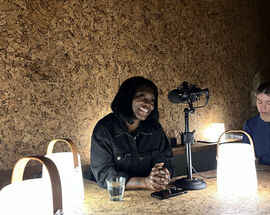


Comments